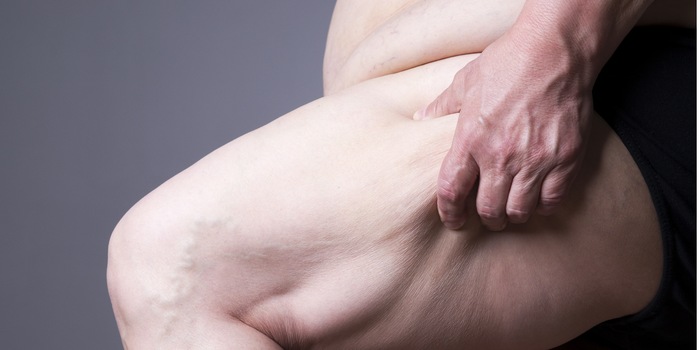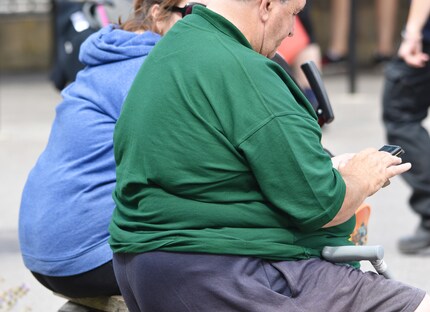
The «fatsuit» combatting prejudice
Being overweight carries a stigma. That's a fact. A new study includes role playing with «fatsuits» to demonstrate medical students' preconceptions of obesity.
Obese people are subjected to unconscious stigma and prejudice in many areas of life. Experiences like this are everyday occurrences for many overweight people. But scientific studies also provide evidence for this phenomenon.
For example, studies have shown that many people «stare» at the size of people with obesity, focusing less on their faces and deindividualising them.
Another study found that even experienced HR specialists can discriminate against overweight people, especially women.

Even healthcare professionals are increasingly falling into the trap of preconceptions. Studies have concluded that doctors tend to be less respectful of overweight patients, exhibit less positive communication and spend less time making them aware of their health.
How can we eliminate the stigma of being obese?
Researchers working with Anne Herrmann-Werner at the psychosomatic medicine and psychotherapy clinic at the University Hospital Tübingen wanted to know whether an «obesity simulation suit» and a role play experiment would expose and correct medical students' prejudice towards overweight people.
They published the results of their proof of concept study in the BMJ Open journal.
The researchers used the role play exercise to recreate a routine doctor's appointment. They asked participants to work in groups of ten and play either the role of a patient with diabetes or the doctor.
When playing the patient, participants had to wear an obesity simulation suit. This simulates the appearance of a person with a body mass index (BMI) of 30-39.
Overall, students acting as the doctor in the role play exercise agreed with statements such as:
- «Fat people could lose weight if they really wanted to.»
- «Most fat people are lazy.»
- «There's no excuse for being fat.»
Tutors not playing an active role in the study and students acting as the patient agreed with the statements significantly less.

Two limitations
However, the authors of the study disclosed that only women played patients, so no gender-specific differences or biases could be identified.
A further limitation of the study was that the team didn't assess the attitudes of the students towards people with obesity before the role play began. We therefore can't say for certain whether the exercise really helped to reduce prejudice in participants.
However, Anne Herrmann-Werner and her colleagues came to the conclusion that:
«despite these limitations, we are firmly convinced that integrating an obesity simulation suit is a valuable teaching tool for students in the medical context. It can raise medical students’ awareness for communication encounters with patients with obesity.»
Find more news and trends here. Simply click «follow author».
From radio journalist to product tester and storyteller, jogger to gravel bike novice and fitness enthusiast with barbells and dumbbells. I'm excited to see where the journey'll take me next.
From the latest iPhone to the return of 80s fashion. The editorial team will help you make sense of it all.
Show all